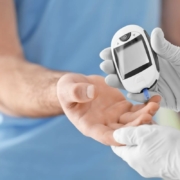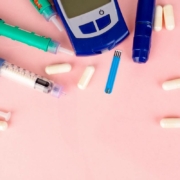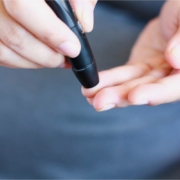What is a Diabetes Management Program?
To lower the risk of diabetic complications, individuals with diabetes are being urged to take a diabetes management program. It is difficult to get every question answered that you have about your diabetes care in the space of a doctor’s office visit. Doctors see many patients in a day and emergencies arise as well; therefore, they, unfortunately, don’t have as much time to spend with each patient as they would like. A diabetes management program can help provide the in-depth answers and care you are seeking by stepping in to fill that void.
It is easy to forget certain aspects, as well, over time, so reminders are always a good idea. Diabetes is not a benign illness and if the blood glucose levels are not managed well, the disorder can lead to devastating permanent complications that include blindness, loss of the kidneys, blindness, amputations, and strokes. To enable individuals to self-manage their diabetes, today we have a patient-centered diabetes program.
These patient-centered programs provide comprehensive knowledge in the management of diabetes and have been shown to lower the risk of both acute and chronic complications of the disease. Different programs can offer online and in-person training to the public.
What Do These Diabetic Management Programs Involve?
Even though there are dozens of diabetic management programs available, they essentially all have one universal feature: they teach the diabetic individual how to most effectively lower his or her own blood sugars and reduce the risk of complications. Patients with diabetes are asked to participate in a program for 6-12 months. The diabetic management programs are usually managed by a team of healthcare professionals who help set up an individualized program so that the diabetic can achieve healthy blood sugar levels.
What Are The Credentials Of People Who Offer Diabetes Management Programs?
Diabetes programs are run by several healthcare professionals that may include doctors, nurses, pharmacists, therapists, social workers, certified diabetes educators, exercise experts, and a board-certified diabetes manager.
How Does A Diabetes Program Operate?
- At the first visit, you will meet with a nurse practitioner, diabetes educator, pharmacist, and/or a diabetes manager who will review your diabetic history, type of medications you take, the levels of your blood sugars over the past year, and presence of any complications. All your medications will be reviewed, and it will be determined if you may warrant a change in medications. Several solutions will be provided to help lower your blood sugar, including a change in diet and the need for exercise.
- At the second meeting which is usually held a week after the first one, the diabetic nurse will review your blood glucose levels over the past week. Suggestions will be made to fine-tune your blood sugar levels.
- The third meeting is usually held about a month later and generally involves the diabetic nurse, diabetic educator, and diabetic manager. At this meeting, the following issues are typically discussed:
- Importance of medication compliance
- Learning to read food labels
- Eating healthy
- Lowering the risk of diabetic complications
- Lowering stress at home
- Importance of being physically active
- Types of exercises that can help lower blood sugars
- How frequently should you monitor blood sugar levels?
- How to work effectively with your healthcare provider
Throughout the duration of the program, the diabetic patient will be regularly in contact with a dietitian, diabetic education, pharmacist, or a diabetic nurse. At each of these sessions, the blood glucose levels are reviewed, and minor modifications can be made accordingly.
How Do These Diabetic Management Programs Help?
There is good data to show that people who participate in diabetic management programs have the following benefits:
- Reduce the risk of developing diabetic complications
- A lower level of A1C
- Better quality of life
- Marked reduction in healthcare expenses
What Is The Cost Of Diabetes Management Programs?
The cost of these programs varies depending on the type of services involved but usually can range from $50-$100. However, several diabetic foundations, private insurers, Medicaid, and Medicare may also partially or fully cover the cost of these programs. At Cano Health, our goal is to help you enjoy the healthiest lifestyle possible. This includes learning a variety of healthy habits, including which foods are best to eat to stay fit and the best exercises you can do for your both.
By enrolling in a diabetes management program, you will not only learn to eat healthier, cope better with the emotional aspects of diabetes, and reduce the risk of diabetic complications but your quality of life will be markedly improved as well. By knowing more about managing your blood sugars, you can also reduce your overall healthcare costs.









